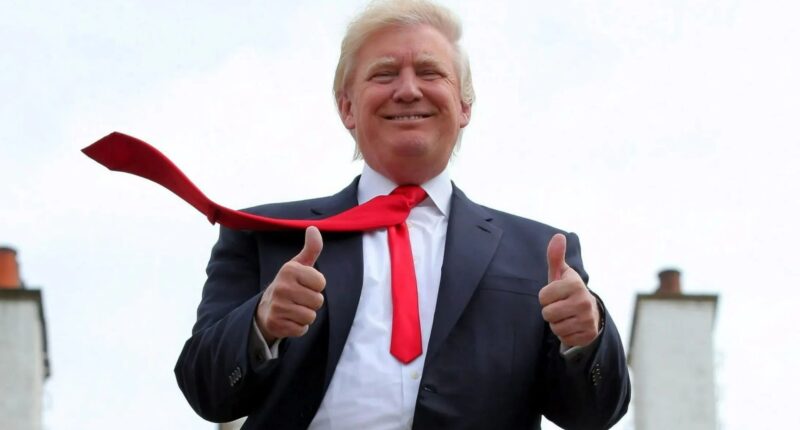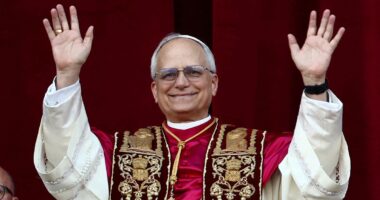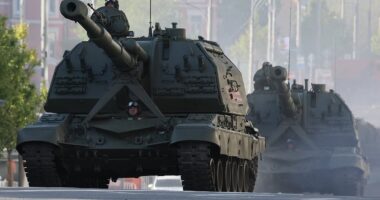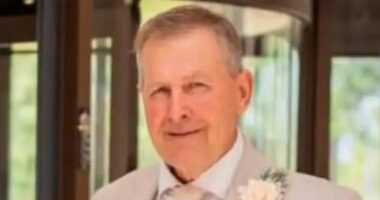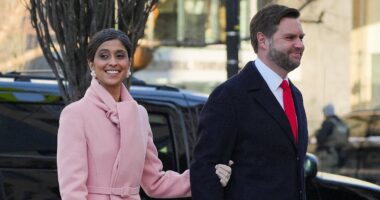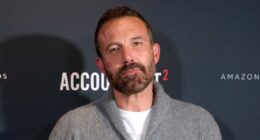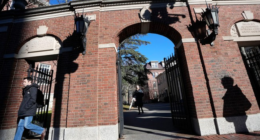Donald Trump’s primary objective in his first year back in the White House will be clear-cut. The outcome of his efforts will have a profound impact on the future of the world.
The 78-year-old Republican’s key aim as the world rings in 2025 will be to “end wars”, according to top political analyst Alan Mendoza.



According to Mendoza, who serves as the executive director of the Henry Jackson Society, Trump will concentrate on negotiation and making deals. His aim is to transform the global landscape while prioritizing American interests.
Trump will be directing his attention towards pivotal regions such as Ukraine and Russia, the Middle East, and the tensions escalating in East Asia around China. His goal is to communicate a message of promoting peace through projecting strength.
“Trump ends wars. That’s his message, and that will likely be his goal for 2025.
“What that means in practice, we’re unclear at this stage.
“But if you look at past practice, it’s the idea of some kind of deal where he says, ‘I’m going to create a deal that brings wars to an end, that brings enemies together, whether they like it or not. I’m going to be the arbiter of peace’.”
This deal-making approach could have far-reaching consequences, especially in hotspots like Ukraine, the Middle East, and East Asia.
Mendoza added: “We’re already seeing positioning taking place in Ukraine, with President Zelensky and President Putin trying to get their ducks in a row before Trump takes over.
“The same thing is happening in the Middle East.
“The ceasefire between Israel and Hezbollah is likely being held with half an eye on Trump’s expected push for peace.”
But Trump’s vision for peace goes beyond mere negotiation.
Mendoza said: “Trump’s message is: I want peace.”
Whether he can deliver on that promise remains to be seen, as he inherits a world rife with challenges and unpredictability.
When Trump re-enters the Oval Office on January 20, he’ll face a volatile global landscape filled to the brim with challenges.
In Ukraine, Kyiv’s forces are holding strong, buoyed by Western support, even as Russia has been capturing territory equivalent to two football pitches every minute.
But cracks are forming in the alliance, with some allies growing tired by the prolonged war.
This presents an opening for Trump to push for peace talks.
But, as Mendoza notes, these discussions would likely “favour US strategic interests”.
He explained: “If it doesn’t benefit the US, Trump won’t hesitate to cut ties or redefine the terms of the alliance.”
Such terms could create tension among allies but align with Trump’s broader agenda of ending wars while prioritising domestic benefits.
Meanwhile, the Middle East powder keg remains shaken with tension of interrelated conflicts.
Gaza faces a catastrophic humanitarian crisis, and the fragile ceasefire between Israel and Hezbollah terrorists teeters on the edge of collapse.
The Middle East remains a critical focus for Trump’s deal-making ambitions.
“The humanitarian situation in Gaza is catastrophic,” says Mendoza, adding that Trump’s administration will likely attempt to mediate a negotiated solution.
“Whether that means an end to the Gaza conflict or a broader framework involving Hezbollah remains unclear, but Trump will want to insert himself into the process.”
Iran’s nuclear ambitions could also face renewed pressure under Trump.



“There might be a new nuclear deal on offer—or rather, a deal for Iran not to become nuclear,” Mendoza speculates.
“Trump will want to throw Iran off balance and lower tensions, perhaps with a deal they aren’t expecting, like a one-year agreement instead of long-term pressure.”
Meanwhile, the fall of tyrant Bashar al-Assad’s regime by Islamist rebels adds yet another layer of complexity.
In East Asia, tensions between China and Taiwan are at their highest in decades.
“Trump will be sending a message: Don’t mess with the US.
“Don’t start a conflict on my watch, because I will prosecute it ruthlessly,” Mendoza said.
While a comprehensive deal with China may be challenging, particularly due to ongoing trade disputes and tariffs, Trump’s focus will likely shift to deterrence.
The think tank expert explained that Trump will not hesitate to draw red lines in defending Taiwan, emphasizing Trump’s hardline approach to Beijing.
North Korea, meanwhile, remains an unpredictable wildcard and Trump’s approach will be shaped by the region’s volatile dynamics.
Trump’s main policy points

DONALD Trump closed the Republican National Convention on July 18, telling supporters he wanted to become president for “all Americans”
- Implementing tax cuts, including no tax on tips
- Protecting Social Security and Medicare – Trump said “Iincomes will skyrocket and the middle class will prosper like never before”
- Protecting borders – He pledged to end the “border nightmare”
- Finishing building the wall
- Keeping our “sons and daughters safe”
- Replenishing the military and building a military “dome” – Trump insisted he could stop wars with just a phone call and said no military would be able to penetrate the USA if he came into office
- Ending the war in Ukraine and imposing tariffs on Iran.
- Vowing to “beat” China
- Working to decrease prices and ease inflation
- Bringing down the cost of energy
- Making cities “safe, clean and beautiful” again
- Making it possible for Americans to buy gas-run cars by ending the electric vehicle mandate on the first day of his presidency
Trump’s presidency will also bring renewed pressure on NATO allies.
“This presidency will be very transactional,” Mendoza noted.
“What you get from the US will depend very much on what you give to the US.”
Defence spending is also expected to become a central issue.
“Getting Europe and NATO to pay their way will be one of Trump’s most important priorities,” Mendoza said.
“It’s about relieving the financial burden on the US and ensuring allies take their security commitments seriously.”
Despite his clear goals, Trump’s first year in power could face unexpected challenges, as there always are.
But he will be sure to maintain his strong “ending wars” policy, while looking at getting allies to pay their ways and easing the giant spending off America’s shoulders.
Trump’s leadership style will also play a significant role.
Known for valuing loyalty, he is expected to surround himself with fiercely loyal advisers.
“A unified team ensures focus, particularly in areas like trade, defence, and diplomacy,” Mendoza explains.
“That seems to be the most obvious starting point for a Trump presidency in 2025.”
